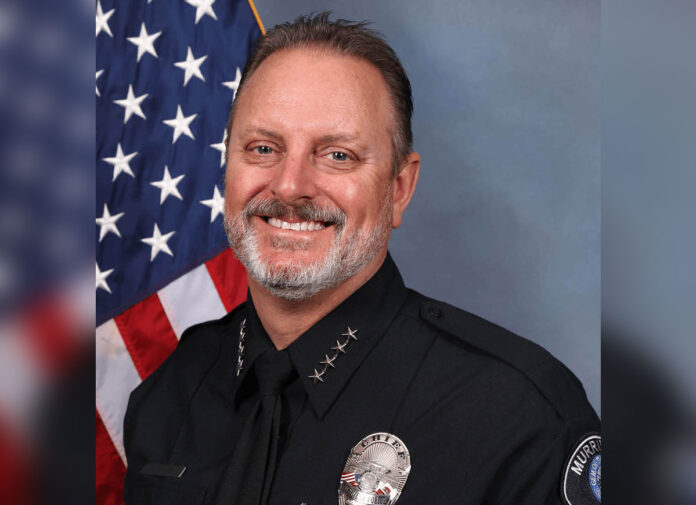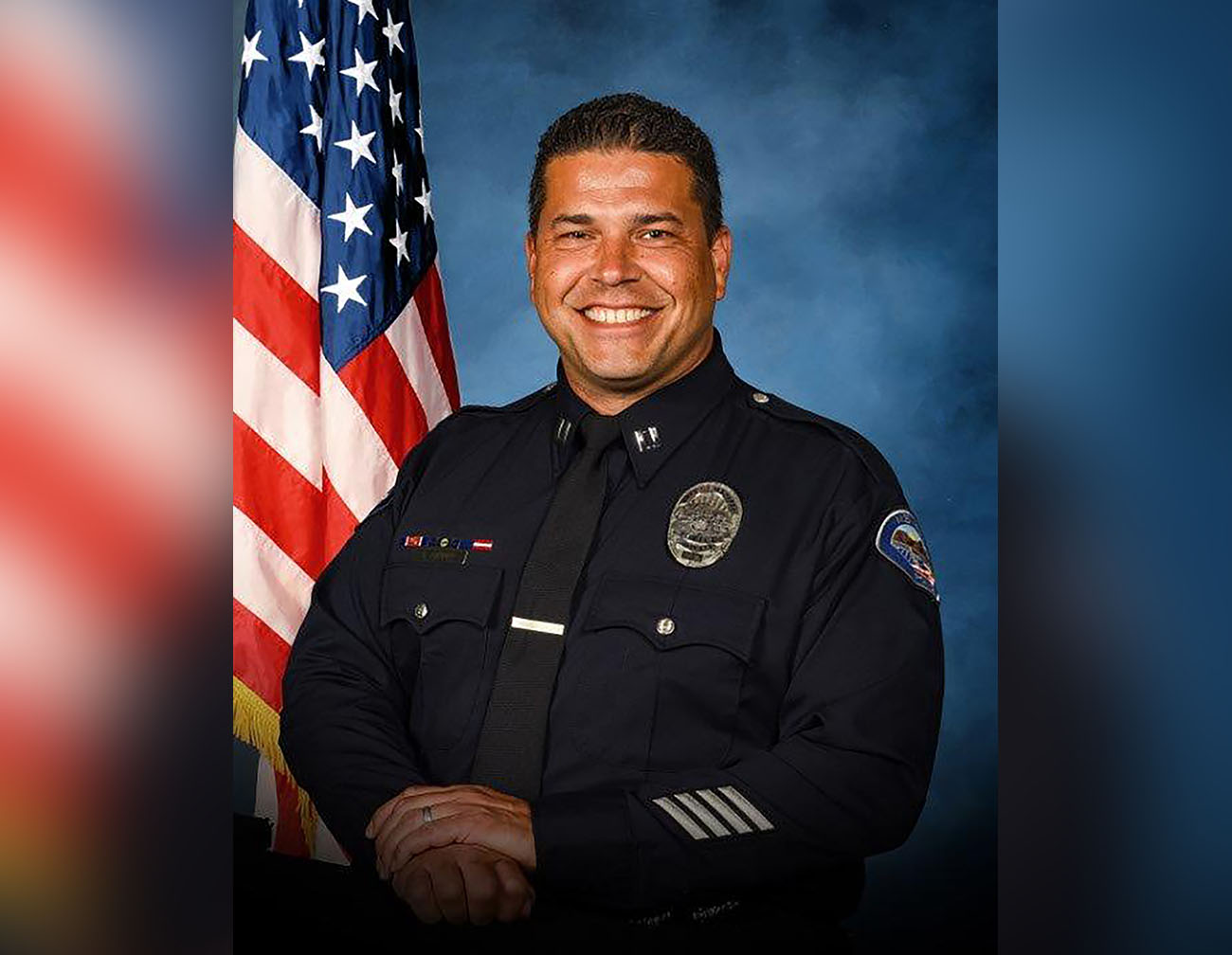The retirement of Murrieta Police Chief Anthony (Tony) Conrad filled the Murrieta City Council chambers with city, county, state and federal well wishers on Tuesday, Dec. 3 in Murrieta.
In recognition and voice of appreciation, Conrad, the city’s police chief for the past four years and a Murrieta police officer for 21 years, received many certificates, words of praise and gifts from the dignitaries and city council members as well as retiring Murrieta City Manager Kim Summers and acting City Manager Justin Clifton. Corad’s wife of many years, Dana Conrad, was praised as well for seeing her husband through the good and bad times and was presented a large bouquet as well.
Most notable of the dignitaries was Senator Kelly Seyarto, who at one time was a former Murrieta City Council member and retired firefighter, said he remembered when Conrad was a new city police officer and saw him as an “exemplary” police officer for many, many years. Seyarto presented him with a thank you proclamation.
One after another, special guests and friends, from Riverside County Third District Supervisor Chuck Washington to three neighboring city police officers, praised him for not only his distinguished law enforcement service that began in San Diego to him being seen as a “victim’s advocate,” placing them always first in his years in law enforcement.
Murrieta Mayor Lori Stone said police chief and officer Conrad was and is “The best of the best.”
Mayor Pro Tem Cindy Warren described Conrad with a few words. “Honesty, character, integrity, faithful, and true to your heart to this community.”
Councilmember Lisa DeForest said Conrad connected to the community and was always “kind and compassionate.”
Councilmember Jon Levell said Conrad was truly “An advocate for the community.”
Councilmember Ron Holliday said Conrad was a “Quality individual and an advocate of the community.”
All the council wished him and his wife the best in his retirement and presented him with a proclamation with all his achievements as a police officer and chief. Retiring City Manager Kim Summers called him an “amazing chief” and presented him with a traditional green and white street sign with his name “Conrad Court” on it. Acting City Manager Clifton presented him with a gold watch from the city for his many years of service.
Conrad at the end of the ceremony said he was humbled by all the attention and thanked the city council and city manager for supporting all his efforts that help make Murrieta one of the safest cities California and to his police officers who upheld the greatest standards of a police officers and all the citizens who support the police and fire departments in the city.
A standing ovation to the outgoing police chief filled the chambers.
In regular business the Director of Public Works Bob Moehling first gave an update on the upcoming Murrieta Hot Springs Road widening and upgrade where earlier that week a pedestrian was unfortunately killed. He said the major road project from Winchester Road to Margarita Street construction will officially begin in February or March of next year. The $10 million project will include the widening of the roadway to three lanes in both directions, sidewalks, street lights and a traffic signal at the intersection of Calle Del Lago and Murrieta Hot Springs Road. He said the construction is mainly being funded by a Riverside County Transportation grant of $3 million, $3 million in Transportation Uniform Mitigation Fees (TUMF) and $3 million from Development Impact Fees (DIF). All the land acquisition for the project has been made.
The council in a discussion item looked at the city’s traffic congestion problems. Mayor Stone led the discussion who said representatives from all the surrounding cities are facing the same traffic congestion problems with almost 75,000 new homes expected to be built in the area and all the motorists it will bring.
She noted it was the consensus of those other representatives that because Caltrans said it will build no more freeways, future residents should look at not taking the present freeway and use surface streets to travel to and from work and play with the use of regional traffic signal synchronization. Some traffic signalization synchronization is already helping.
The council saw that the state housing mandates without offering compensation has much to do with the future traffic congestion, which is inevitable. She also noted it was determined the state’s billion dollar light rail program will not work in Riverside County with its predicted major increase in population.
The discussion led to some thought in seeing if Caltrans would allow the city to control their traffic signals over the two freeway overpasses and tie them in with the city’s own synchronization process, and to use outside AI companies to help improve the traffic flow in the major streets in the city, particularly Murrieta Hot Springs Road. Another idea would be to create a Traffic Management Unit where operators could watch and change the signalling as needed to improve the traffic flow.
One idea was to have a police officer in every main intersection to control the traffic which was determined completely unreasonable.
Following the discussion, the city manager was tasked to come up with the best ways or program to mitigate the present heavy traffic congestion seen in the city and the cost of using that program or others that might work.
Following that conversation, Mayor Stone brought forth a suggested resolution to send to all the more than 400 cities in California objecting to the state unfunded mandates regarding RENA housing requirements and allowing the cities to determine how many more high density homes they could handle in public safety and infrastructure. The lengthy resolution showed the objection by Murrieta residents and its council to the mandates and sought other cities to join together to send it to the state legislature and the governor.
The council agreed with Stone and favored a resolution that would be more general and simple so all could put their city names to it. It was left to the city manager and staff to make it more a general resolution and bring it back to the council at the Dec. 18 meeting.
Appearing in favor of the city resolution on the matter were several community health care workers whose hospitals are overwhelmed by patients in the emergency rooms with not enough hospital beds for those in need.
Tony Ault can be reached at tault@reedermedia.com.







